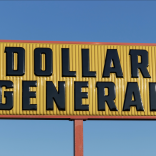In this article, he questions the major investment by the Quebec government in the Northvolt mega-factory, located on Montreal’s South Shore: “As for me, I’m not asking when, but if we will ever actually produce batteries there. That’s where I stand.“
I had also written a blog post on this topic in October 2023: “Northvolt, a Good Investment Decision?“ The recent announcement that Northvolt will delay its project in Quebec by over 18 months compared to the initially planned timeline somewhat shakes taxpayers’ confidence in this mega-project.
Labeaume’s piece got me thinking about the perspective of an investor or entrepreneur when it comes to investing. I’ve always believed that it’s better for a company to invest organically in its existing operations rather than making acquisitions or attempting to develop entirely new markets. As a rule, it’s generally better to invest in growing current activities rather than trying to develop entirely new business lines. In his article, Labeaume writes, “I always prefer endogenous economic development over exogenous, meaning development from Quebec entrepreneurship based on our own strengths.“
When a company decides to invest in its existing operations, it invests in what it knows intimately, likely where it holds a competitive advantage. This significantly reduces risk.
Recently, at COTE 100, we had to make a similar decision: invest in a completely new line of services or offer our services to a new clientele? In the first case, the potential looked very attractive on paper, but the unforeseen challenges were numerous and significant. It would have required building a new team and acquiring expertise very different from what we already had. A new business model would also have been needed, along with new products and services. The other option required little additional staff and a relatively simple start with products we already owned.
I believe that the Quebec government’s decision to invest $436 million in direct subsidies and $1.3 billion in production subsidies in a loss-making (and foreign) company, whose technology has yet to prove itself, represented an unusually high risk. It may be easy to say this now, but the Quebec government would probably have been better off investing in Quebec entrepreneurs, a strength of our province, rather than betting such a large sum on a single project. A more logical decision would have been to invest in incentives for research and development by Quebec companies. Another option would have been to encourage the creation of new Quebec businesses. The risk to taxpayers would have been much lower. It also could have been possible to reduce the tax rate for small businesses. All these options would have spread wealth and risk among a larger number of local businesses.
As an investor, I have drawn a few lessons from the Northvolt case:
- It’s difficult, if not impossible, to predict the future, to choose the industry, or even the company, that will be successful in the next five or ten years. That’s why I prefer to stay away from startups that promise great things but have not yet proven the viability of their business model. From what I’ve read recently, Northvolt is losing a lot of money.
- It’s better to diversify. The Quebec government may have made a mistake by investing such a huge amount in a single project. It would have been wiser to spread the $7 billion among hundreds of companies and entrepreneurs in the province. The same principle applies to building an investment portfolio.
- In a broader view, it’s better to let the free market do its work rather than centralizing investment decisions in the hands of the government. As a rule, Adam Smith’s famous “invisible hand” works well.
Some will say it’s still too early to draw conclusions about Northvolt. That’s true, and I’m keeping my fingers crossed that the project will be successful in the future. However, I believe the government should change the way it invests in the economy starting now.
Philippe Le Blanc, CFA, MBA
Chief Investment Officer at COTE 100
_______






